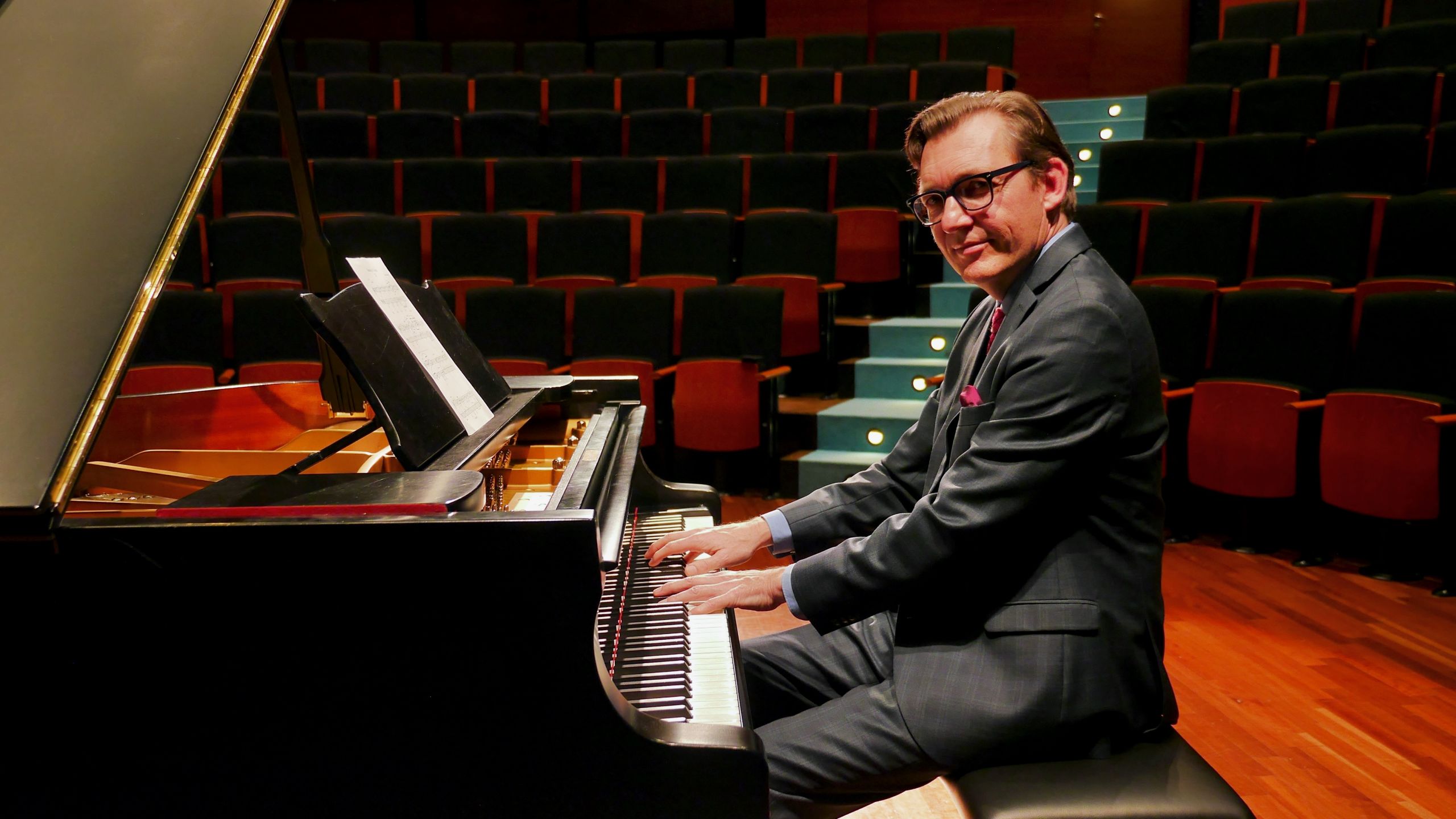About
Cabaret pianist, singer, moderator and composer Markus Schimpp, born 1964 in Augsburg, works in a number of genres and is driven by an inner necessity to give the fullest attention to the musical concept and artistic idea of the present moment. In both his cabaret shows and classical concert music, moving or touching the audience is always Schimpp’s central concern. His musical education at the Leopold Mozart Conservatory in Augsburg – a time dedicated to many chamber music and orchestral performances – formed the foundation for a rather atypical musical career. After his examinations in piano and oboe performance, he began to work as a cabaret performer and moderator for varieté productions in 1993. Schimpp started composing in 2000, first by writing chansons, then increasingly music for the stage, music for choreography and scores for short films. “Yearning for Silence” is his first solo album with his own compositions. Markus Schimpp lives in Bonn.
